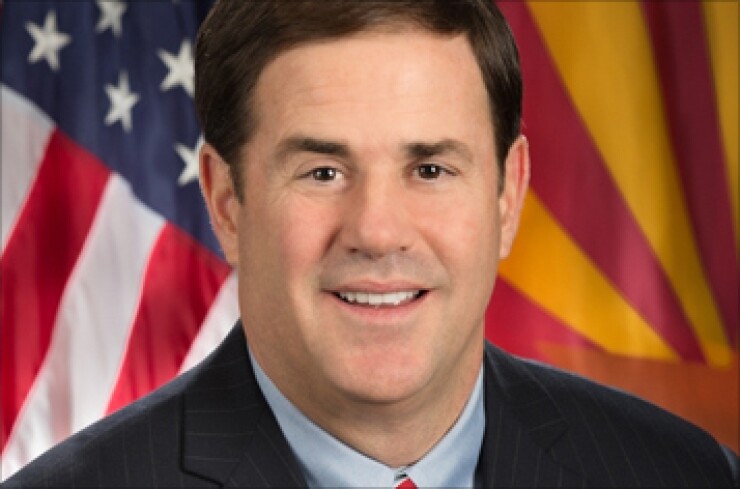
WASHINGTON – A House panel hearing on a federal oversight board for Puerto Rico has been postponed until Feb. 2 as a Republican governor urges Congress to refrain from a Super Chapter 9 solution, but calls for restructuring and doesn't rule out bankruptcy access for the commonwealth's authorities.
The House Natural Resources Committee Subcommittee on Indian, Insular, and Alaska Native Affairs had previously scheduled its hearing for Jan. 26 but rescheduled after the weekend's blizzard and subsequent big dig-out.
The hearing is expected to include testimony from: Anthony Williams, the former mayor of Washington D.C., which had a control board for several years; James Spiotto, managing director of Chapman Strategic Advisors in Chicago and bankruptcy expert; Carlos Garcia, the former chairman and president of Puerto Rico Government Development Bank; Simon Johnson, a professor of global economics and management at the Massachusetts Institute of Technology; and Thomas Moers Mayer, a partner with Kramer Levin Naftalis & Frankel law firm in New York, according to a congressional aide.
While the hearing will not directly address Super Chapter 9 for the entire Commonwealth of Puerto Rico, a proposal from the Treasury Department included the idea and discussion of it has come up during past congressional hearings.
Meanwhile, Arizona Gov. Douglas Ducey is urging Congress to oppose Super Chapter 9, which he said would create "a moral hazard for states and territories" and "disincentivize … states from guarding against the risks and consequences of profligate spending." If Puerto Rico were allowed to use Super Chapter 9, it would be able to restructure its constitutionally backed general obligation debts, something states cannot do under federal law.
"Of most concern to me as a governor, granting Puerto Rico such unprecedented bankruptcy authority would likely raise the borrowing costs of our state, reducing our ability to invest in vital services and eroding investor confidence in the whole notion of full faith and credit debt," Ducey said. "The proposed policy amounts to a bailout for Puerto Rico's unwillingness to make tough decisions as we have in Arizona, and may encourage other states and territories to make similar unwise choices."
He also cited a warning from the Republican Governors Association in 2011 that said states should not be given the authority to declare bankruptcy themselves because it would result in market volatility that would raise the cost of state governance.
Treasury first floated the idea of a Super Chapter 9 solution in late October as part of a four-part plan to help Puerto Rico. The plan also includes a federal oversight board and changes to the way the federal government treats Puerto Rico for tax and healthcare purposes.
The plan has yet to gain traction in Congress as the majority of legislators arguing for a bankruptcy solution only want Chapter 9 extended to Puerto Rico's public authorities to match up with the current federal law for states.
Ducey said keeping Chapter 9 confined to just public authorities on the island would be "a more prudent course of action" but added Congress should most importantly encourage Puerto Rico to engage directly with creditors to come up with a consensual solution to its debt problems.
The Association of Financial Guaranty Insurers, which represents companies that insure more than $14 billion of bonds issued by Puerto Rico or its public authorities, made a similar push for consensual restructuring in a Jan. 20 letter. But the first example of consensual restructuring, a creditor agreement with the Puerto Rico Electric Power Authority, ran into trouble on Friday after Puerto Rico politicians failed to pass legislation the deal required by the agreed upon deadline.





